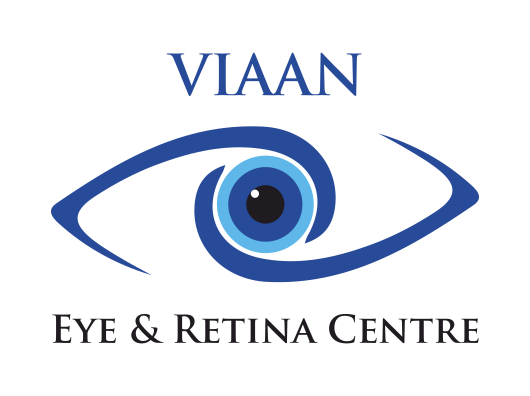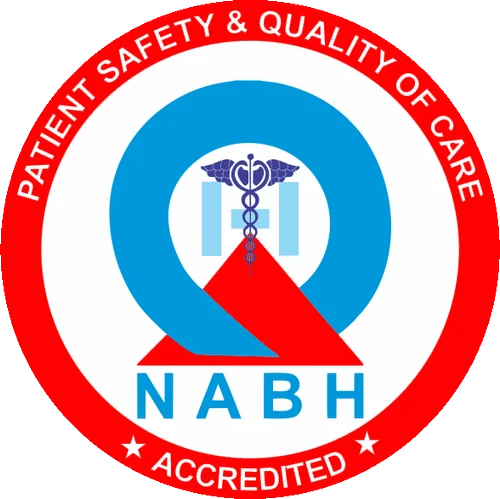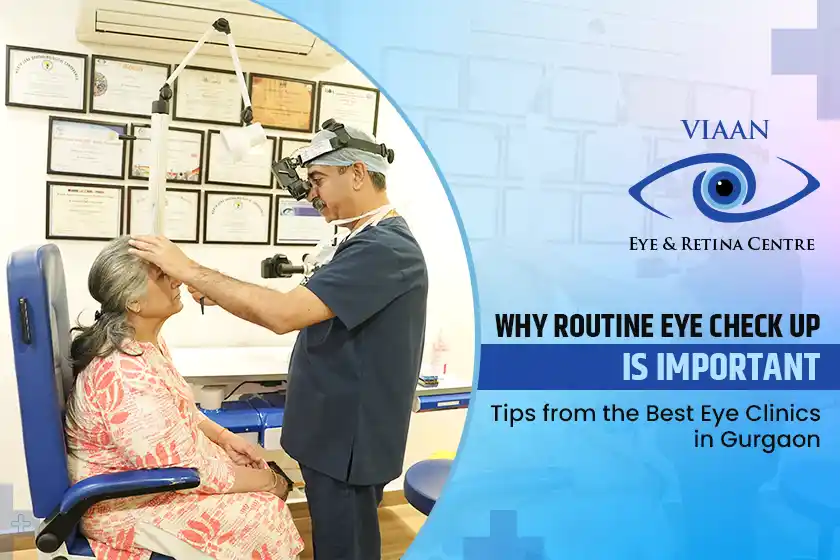Let’s be honest, most of us take our eyesight for granted. We wake up, see the world around us, and go about our day. But did you know that regular eye checkups are crucial for maintaining healthy vision and even detecting underlying health issues?
We often take our eyesight for granted, but did you know that regular eye checkups are crucial for maintaining healthy vision and overall well-being? According to the World Health Organization, an estimated 2.2 billion people globally have vision impairment or blindness, and in many cases, this could have been prevented or treated with early detection through routine eye exams.
Through this blog let’s learn how eye check up play an important factor in our lives, and why it’s important to follow routine consultations with doctors for optimal eye health.
Maintaining a Healthy Vision Throughout Life
Routine eye exams aren’t just for adults. Children’s eyes are constantly developing, and regular check-ups are essential to ensure their vision is on track. In fact, the American Optometric Association recommends that children have their first eye exam at six months old, another at age three, and then every year or two as recommended by their eye doctor.
Adults should also schedule regular eye exams, even if they don’t experience any vision problems. The frequency of exams can vary depending on age, health conditions, and family history, but a good rule of thumb is to have an eye exam every one to two years.
Reasons Why Routine Eye Check Up Is Important
1. Early Detection of Eye Diseases
Just like any other part of the body, our eyes are susceptible to various diseases and conditions, such as glaucoma, cataracts, macular degeneration, and diabetic retinopathy. These conditions often develop gradually and may not show any noticeable symptoms in the early stages. Regular eye exams can help detect these issues early on when they are most treatable, potentially saving your vision.
For instance, glaucoma, often dubbed the “silent thief of sight,” can cause irreversible vision loss if left untreated. However, with early detection and appropriate treatment, vision loss can be significantly slowed or even prevented.
2. Monitoring Vision Changes
Our vision can change over time due to various factors like aging, underlying health conditions, or lifestyle habits. Regular eye exams allow eye care professionals to monitor these changes and prescribe corrective measures like glasses or contact lenses, ensuring that your vision remains sharp and clear.
Take the example of a young student who starts experiencing difficulty reading the blackboard. A simple eye exam might reveal nearsightedness, which can be easily corrected with glasses, enabling the student to continue learning without hindrance.
3. Identifying Underlying Health Issues
Our eyes are not just windows to the soul but also to our overall health. Eye exams can reveal signs of systemic diseases like diabetes, high blood pressure, high cholesterol, and even some autoimmune disorders. Early detection of these conditions through eye exams can lead to timely interventions and better health outcomes.
Diabetic retinopathy, a common complication of diabetes, can be detected during eye exams. Early diagnosis and treatment can prevent vision loss and other serious complications.
4. Protecting Eye Health in Children
Children’s eyes are still developing, and regular eye exams are crucial for ensuring their visual development progresses smoothly. Undetected vision problems in children can hinder their academic performance and overall development.
Studies have shown that nearly 25% of school-aged children have vision problems that can affect their learning. Early detection and treatment through routine eye exams can make a significant difference in their lives.
5. Maintaining Optimal Eye Function
Even if you don’t have any known eye problems, regular checkups are essential for maintaining optimal eye function and ensuring that you enjoy clear vision throughout your life. Doctors recommend the following frequency for routine eye exams:
- Adults (18-60 years): Every 2-3 years.
- Adults (61+ years): Annually.
- Children: First eye exam at 6 months, then at 3 years, and before starting school.
Major Points To Keep In Mind For Vision Safety
- Don’t wait for symptoms: Schedule regular eye exams even if you don’t experience any vision problems.
- Be honest: Share any concerns you have about your vision or eye health with your eye doctor.
- Follow recommendations: If prescribed glasses or contact lenses, wear them as directed.
- Protect your eyes: Wear sunglasses and protective eyewear when necessary.
- Maintain a healthy lifestyle: Eat a balanced diet, exercise regularly, and avoid smoking.
The Bottom Line
Regular eye exams are an investment in your long-term vision and overall health. Early detection and treatment of eye diseases can prevent vision loss and improve your quality of life. So, prioritize your eye health and schedule your next eye exam today.
If you are seeking for the best eye specialist in Gurgaon, consider visiting Viaan Eye & Retina Centre the Best Eye Clinics in Gurgaon, a renowned eye clinic specializing in eye care. We offer a wide range of services, including routine eye exams, diagnosis, and treatment of various eye conditions. With their team of experienced eye specialists and state-of-the-art technology, you can trust them to provide you with the best possible eye care.



